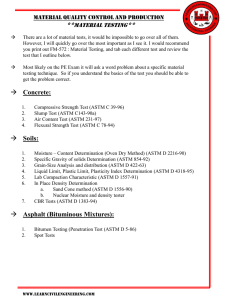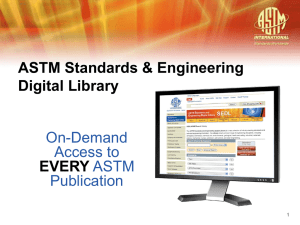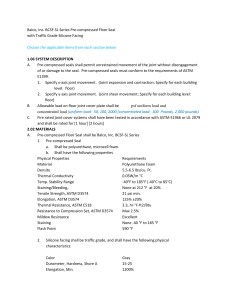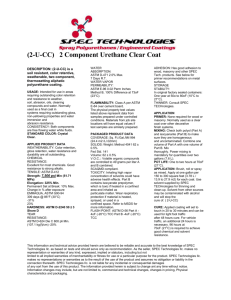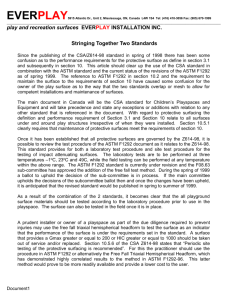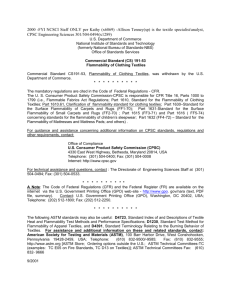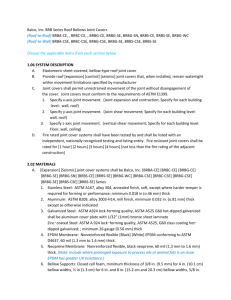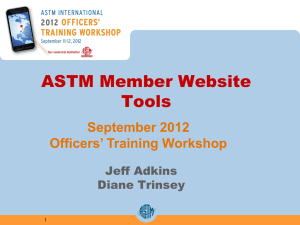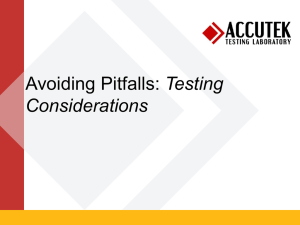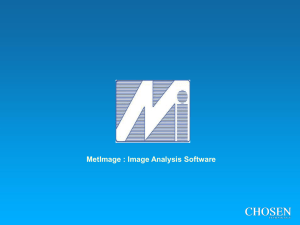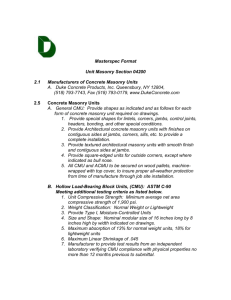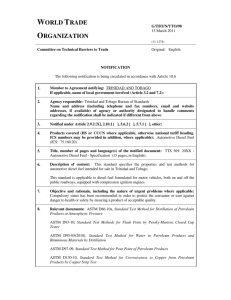The Environment - ASTM International
advertisement
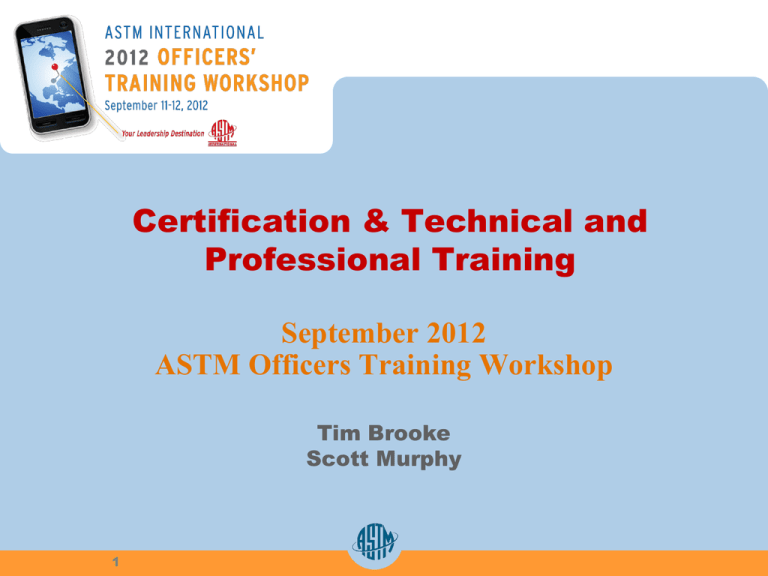
Certification & Technical and Professional Training September 2012 ASTM Officers Training Workshop Tim Brooke Scott Murphy 1 Why Certification Services? New Activities needed standardization and certification Neutral, Independent Third Party Expand Existing Services • Proficiency Testing Programs • Technical and Professional Training 2 Development of New Programs Programs for Products (ISO Guide 65), Personnel (ISO Guide 17024) and Personnel Certificates (ASTM Practice E2659) Industry/technical committee support, do not duplicate existing programs Based on ASTM standards 3 Development of New Programs ASTM Headquarters – provide administrative support Technical Advisory Committee – provide technical direction Committee on Certification Programs Accreditation as needed 4 Product Certification Programs Participation Requirements • Participant Agreement • Documentation of Sample Selection Form Partner with Independent Laboratory • Accredited to ISO 17025 Auditing/Verification Requirements • Yearly confirmation • Re-Testing 5 Personnel Certification Programs Body of Knowledge Application w/ Eligibility Requirements Standardized Assessment Continuing Education Requirements Re-certification Requirements 6 Personnel Certificate Programs Technical & Professional Training Course Examination No Continuing Education Requirements 7 Technical and Professional Training Started in mid 80s in response to market needs Teaches the performance, use, and application of ASTM Standards, other standards, and standards-related issues. 90 participants first year; more than 1500 per year now. Public classes and on-site classes. 8 Training Venues Public Classes • Open to Anyone Private Classes • Held at a Client’s Site • Save on Travel Costs • Lower Per Student Cost • Less Time Away from the Job • Training Customized to the Client’s Needs 9 Petroleum Products (D02) Aviation Fuel: Specification and Test Methods Gasoline: Specifications, Testing, and Technology Marine Fuels: Specifications, Purchase, Testing, and Use Crude Oil: Sampling, Testing, & Evaluation Diesel Fuels: Specifications & Test Methods 10 The Environment (E50) Risk Based Corrective Action (RBCA) Environmental Site Assessments for Commercial Real Estate—Phase I and II Asbestos Control (E06/D22) Property Condition Assessments Activity & Use Limitations Vapor Encroachment Screening 11 Textiles (D13) Regulatory Compliance for the Flammability of Wearing Apparel Regulatory Compliance for the Flammability of Children’s Sleepwear Textiles: Quality and Performance Standards ASTM Textile Standards for Yarns and Sewing Threads Flammability of Mattresses, Bed Clothes, & Furniture 12 Additional Courses Available Major Testing Techniques for Plastics (D20) Precision and Bias in Standards (E11) Test Method Development (E11) Coal Chemistry Technician Training (D05) Rubber Testing: Selecting, Performing, and Interpreting ASTM Rubber Test Methods (D11/D24) 13 Additional Courses Available Retroreflective Materials (E12) Corrosion Testing (G01) Fire Hazards in Oxygen Systems (G04) Oxygen Systems Operations and Maintenance (G04) 14 How Are Courses Developed? Noticing a trend in inquiries or sales Members approaching us directly Proposal submitted and evaluated General committee agreement on content and instructor Marketing efforts Course launched 15 Proposal Process Proposal to Technical and Professional Training Staff for review and evaluation. Includes: target audience, suggested topics to be covered, lesson plan General agreement from committee Work with staff manager, marketing, PR Need to demonstrate market for both public and private classes. 16 Development and Instruction Course developers can be paid a consulting fee Instructors are paid a daily fee plus all expenses Doesn’t have to be same person to develop as to teach 17 ASTM TRAINING OUTSIDE OF THE UNITED STATES Australia Guam Bahrain India Belgium Indonesia Canada Israel China Italy El Salvador Jamaica Ecuador Japan France Jordan Germany Korea 18 ASTM TRAINING OUTSIDE OF THE UNITED STATES Mexico South Africa Panama Spain Peru Sweden Philippines Switzerland Qatar Trinidad and Tobago Saipan United Arab Emirates Saudi Arabia United Kingdom Singapore Venezuela Vietnam 19 International Training Partners Japan—Environmental Courses Korea—Environmental Courses India and Sri Lanka—Textiles Courses Saudi Arabia and the Middle East—Petroleum Courses Peru and South America—Environmental Courses and Corrosion Courses Singapore—Petroleum Courses in Southeast Asia Taiwan—Environmental Courses China—Textiles Courses Vietnam—Gasoline 20 On-Line Training Partnered with Environmental Data Resources (EDR) to develop on-line version of E1527 course. On-line version developed and facilitated by same instructors 1st offering Sept 2010 Will develop on-line version of E2600 Vapor Encroachment course for delivery during first half of 2012 21 Take These Ideas Home with You Could your committee sponsor a TPT? Would there be a market need for training on any of your committee’s standards? Are there any new activities going on with your committees that represent an opportunity for training? Any regulatory use of your standards? We are always looking for new ideas…staff is here to support you! 22 Contact Information Scott Murphy • Phone: (610) 832-9685 • Email: smurphy@astm.org • Training web page: www.astm.org/TRAIN/ Tim Brooke • Phone: (610) 832-9729 • Email: tbrooke@astm.org • Certification web page: www.astm.org/CERTIFICATION/ 23
